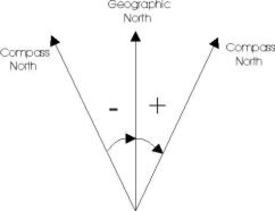Career Change: Becoming a Health & Wellness Coach
Options

ChristinaBarnhouse
Posts: 274 Member
Growing up and into my 20's, I was always overweight, then about 3 years ago, after my second child was born, I joined a gym and started exercising for the first time. Since then, I have lost over 40 pounds and weigh less than I did in high school! I feel better then I ever have and understand how important eating right and exercise is. My interest in fitness, nutrition and motivating others has skyrocketed.
I am 32 now and have done clerical work for the past 13 years. I've always been happy at my desk job, however I feel it's time for a career change. A career in health and wellness is something I'm very interested in and have started looking into all the possibilities. I would love to hear from some of you health and wellness professionals about what the job is like. Some questions I have are:
How did you get into health coaching and what steps did you take to get into the field?
Is it something you do full-time as a career or part-time?
Is this a career where you can actually make a livable income?
How would you describe your typical day?
What to you like best and least about your job?
Any info you can provide would be much appreciated! Thanks so much!! ☺
I am 32 now and have done clerical work for the past 13 years. I've always been happy at my desk job, however I feel it's time for a career change. A career in health and wellness is something I'm very interested in and have started looking into all the possibilities. I would love to hear from some of you health and wellness professionals about what the job is like. Some questions I have are:
How did you get into health coaching and what steps did you take to get into the field?
Is it something you do full-time as a career or part-time?
Is this a career where you can actually make a livable income?
How would you describe your typical day?
What to you like best and least about your job?
Any info you can provide would be much appreciated! Thanks so much!! ☺
0
Replies
-
There is a difference between a "wellness coach" and a health and fitness professional. What most people think of "fitness" jobs involve some type of exercise training and assessment. This includes personal trainers, exercise physiologists, fitness specialists, and related administrative positions.
Wellness or lifestyle coaching, as I understand it, involves a more global approach in teaching people to organize their efforts towards meeting life goals. This can include fitness, but also general health and career goals as well. Many lifestyle/wellness coaches operate as independent businesses.
In each case you are acting as a consultant, offering unique knowledge, experiences, and insight to help clients solve problems.0 -
i dont know how to start my own post, so here it goes....by following the myfitnesspal, can you lose weight, simply by not excercising. my biggest problem, is either i excercise like crazy and eat what i want, or i track everything i eat and forget to excercise. \\
\
comments are appreciated,
thanks,
steph0 -
There is a difference between a "wellness coach" and a health and fitness professional. What most people think of "fitness" jobs involve some type of exercise training and assessment. This includes personal trainers, exercise physiologists, fitness specialists, and related administrative positions.
Wellness or lifestyle coaching, as I understand it, involves a more global approach in teaching people to organize their efforts towards meeting life goals. This can include fitness, but also general health and career goals as well. Many lifestyle/wellness coaches operate as independent businesses.
In each case you are acting as a consultant, offering unique knowledge, experiences, and insight to help clients solve problems.
Thanks!! 0
0 -
Bump... anyone??!?!
 0
0 -
Someone offered this link, in a recent thread:
http://www.alanaragonblog.com/2009/11/12/directions-toward-a-career-in-fitness-part-1/
I thought it was super useful.
Something that's just sort of mentioned in passing throughout all three articles is: mojo. I think it's super relevant. Alan Aragon seems to feel (and I'd agree) that things sort of depend on you (and what you want to do). He suggests that someone with drive who can naturally network, persuade, and inspire confidence may be able to rely on force of personality more than qualifications (which is true in most fields, really).
I think trainers in particular can get a lot of cred from their personal athletic accomplishments and physique, whether that makes sense or not.
If you're not hyper charismatic, or can't rely on your athletic resume, I think it's better to find a niche and get really good at it, taking the strongest qualification you can afford in terms of time, money, and opportunity cost.
If you want to work with rehab populations, it might be worth looking at allied health professions, which are regulated and usually require an MA (eg occupational or physical therapy*). Might be easier in some ways, as a career changer. I am doing something similar
There are also qualifications in Health Promotion, which involves working with community groups (also MA, I think?). I have seen 'weight management counselling' and 'obesity management' type roles that might require a college qual.
But, I think Alan's advice is spot on, in terms of not getting caught up in titles. Figure out what you want to spend your actual hours doing, figure out who does that, interview or shadow them. To work out which qualifications have currency, interview local employers, scan job ads, and look at successful potential competitors' work histories.
THEN get qualifications you NEED.
Best of luck!
*Sorry, in the US I think Physical Therapists will soon need a doctorate.0 -
-
Someone offered this link, in a recent thread:
http://www.alanaragonblog.com/2009/11/12/directions-toward-a-career-in-fitness-part-1/
I thought it was super useful.
Something that's just sort of mentioned in passing throughout all three articles is: mojo. I think it's super relevant. Alan Aragon seems to feel (and I'd agree) that things sort of depend on you (and what you want to do). He suggests that someone with drive who can naturally network, persuade, and inspire confidence may be able to rely on force of personality more than qualifications (which is true in most fields, really).
I think trainers in particular can get a lot of cred from their personal athletic accomplishments and physique, whether that makes sense or not.
If you're not hyper charismatic, or can't rely on your athletic resume, I think it's better to find a niche and get really good at it, taking the strongest qualification you can afford in terms of time, money, and opportunity cost.
If you want to work with rehab populations, it might be worth looking at allied health professions, which are regulated and usually require an MA (eg occupational or physical therapy*). Might be easier in some ways, as a career changer. I am doing something similar
There are also qualifications in Health Promotion, which involves working with community groups (also MA, I think?). I have seen 'weight management counselling' and 'obesity management' type roles that might require a college qual.
But, I think Alan's advice is spot on, in terms of not getting caught up in titles. Figure out what you want to spend your actual hours doing, figure out who does that, interview or shadow them. To work out which qualifications have currency, interview local employers, scan job ads, and look at successful potential competitors' work histories.
THEN get qualifications you NEED.
Best of luck!
*Sorry, in the US I think Physical Therapists will soon need a doctorate.
Thanks for the insight! 0
0 -
What does bump mean?0
-
What does bump mean?0
-
Any personal trainers out there?0
-
I've owned my own business and have this to offer, it's probably more about sales and less about health and wellness. You can reject what I just said, but there is a reason why that entire industry is sleezy. Just think more about it. Look up stats on people in the profession, check the BLS Stats for average income, talk to other professionals in your area. I think it's a difficult and cut throat business. The money is in products and books and DVDs and pills. Just my $.02.0
-
I've owned my own business and have this to offer, it's probably more about sales and less about health and wellness. You can reject what I just said, but there is a reason why that entire industry is sleezy. Just think more about it. Look up stats on people in the profession, check the BLS Stats for average income, talk to other professionals in your area. I think it's a difficult and cut throat business. The money is in products and books and DVDs and pills. Just my $.02.
Thanks!!0 -
Thanks for that alan linkSomeone offered this link, in a recent thread:
http://www.alanaragonblog.com/2009/11/12/directions-toward-a-career-in-fitness-part-1/
I thought it was super useful.
Something that's just sort of mentioned in passing throughout all three articles is: mojo. I think it's super relevant. Alan Aragon seems to feel (and I'd agree) that things sort of depend on you (and what you want to do). He suggests that someone with drive who can naturally network, persuade, and inspire confidence may be able to rely on force of personality more than qualifications (which is true in most fields, really).
I think trainers in particular can get a lot of cred from their personal athletic accomplishments and physique, whether that makes sense or not.
If you're not hyper charismatic, or can't rely on your athletic resume, I think it's better to find a niche and get really good at it, taking the strongest qualification you can afford in terms of time, money, and opportunity cost.
If you want to work with rehab populations, it might be worth looking at allied health professions, which are regulated and usually require an MA (eg occupational or physical therapy*). Might be easier in some ways, as a career changer. I am doing something similar
There are also qualifications in Health Promotion, which involves working with community groups (also MA, I think?). I have seen 'weight management counselling' and 'obesity management' type roles that might require a college qual.
But, I think Alan's advice is spot on, in terms of not getting caught up in titles. Figure out what you want to spend your actual hours doing, figure out who does that, interview or shadow them. To work out which qualifications have currency, interview local employers, scan job ads, and look at successful potential competitors' work histories.
THEN get qualifications you NEED.
Best of luck!
*Sorry, in the US I think Physical Therapists will soon need a doctorate.0 -
bumping to check links later0
-
What does bump mean?
"bump" means you want to check out the thread later. It will stay in your history on your page.0 -
bumping for later0
-
Bump0
This discussion has been closed.
Categories
- All Categories
- 1.4M Health, Wellness and Goals
- 396.7K Introduce Yourself
- 44.2K Getting Started
- 260.8K Health and Weight Loss
- 176.3K Food and Nutrition
- 47.6K Recipes
- 232.8K Fitness and Exercise
- 450 Sleep, Mindfulness and Overall Wellness
- 6.5K Goal: Maintaining Weight
- 8.7K Goal: Gaining Weight and Body Building
- 153.3K Motivation and Support
- 8.3K Challenges
- 1.3K Debate Club
- 96.5K Chit-Chat
- 2.6K Fun and Games
- 4.5K MyFitnessPal Information
- 16 News and Announcements
- 18 MyFitnessPal Academy
- 1.4K Feature Suggestions and Ideas
- 3.1K MyFitnessPal Tech Support Questions







